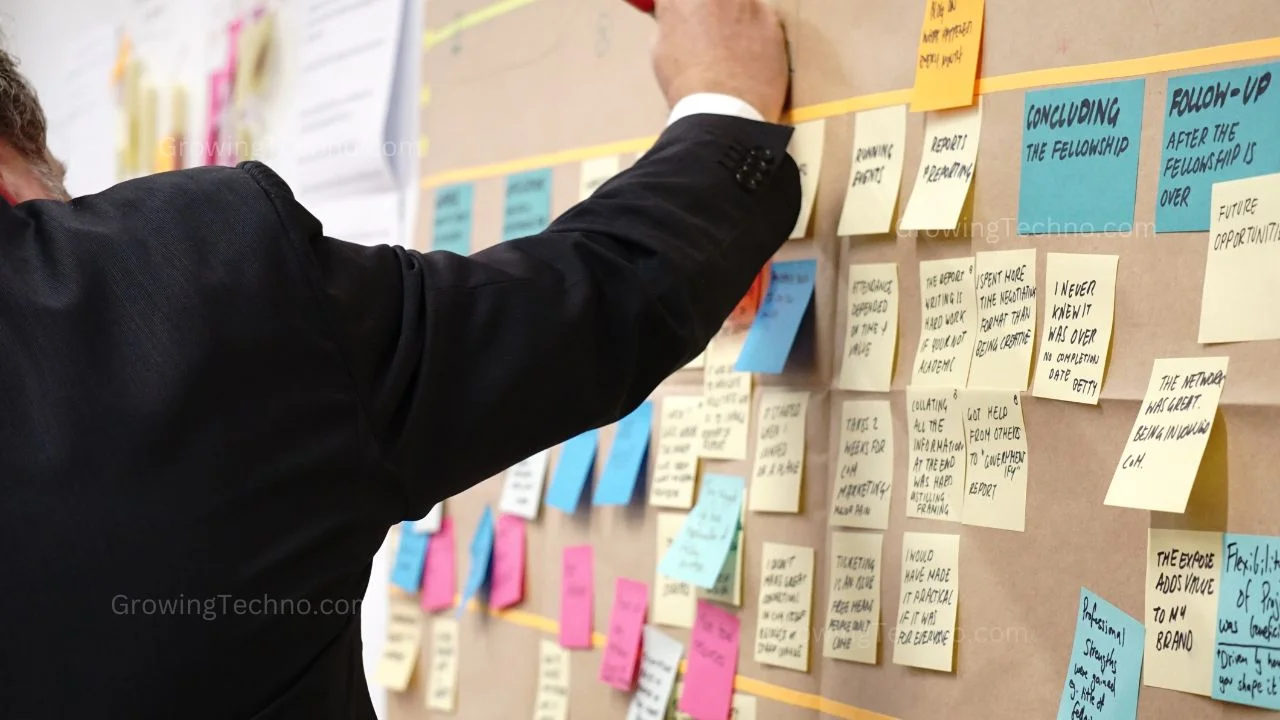
Project management is a vital aspect of modern business, and like any other field, it constantly evolves to keep pace with the dynamic demands of the business world. In this article, we will explore five key trends that are reshaping the landscape of project management. These trends include the rise of fully remote teams, the evolution of resource management techniques, the redefining of agile methodologies, the importance of inclusivity, and the necessity of maintaining flexibility in a fast-paced environment.
Fully Remote Teams
Remote work is not a new concept, but it has gained tremendous prominence in recent times. Before the COVID-19 pandemic, most companies primarily operated from physical office locations, and offshore teams were a rarity. However, the landscape has shifted dramatically, with remote work now being the norm.

Managing fully remote teams presents a unique set of challenges. One significant hurdle is scheduling meetings and stand-ups when team members are spread across different time zones. For example, coordinating meetings between team members in New York, San Francisco, and Buenos Aires provides only a narrow four-hour window for overlap during a standard working day. The complexity escalates when team members span the U.S. West Coast and Europe, resulting in more than an eight-hour time difference.
Moreover, businesses are increasingly tapping into offshore markets for talent, expanding their recruitment efforts to areas once considered out of reach. Effectively managing fully remote teams requires meticulous planning that takes into account cultural differences, language barriers, and time zone disparities.
Advanced Resource Management
Resource Management (RM) techniques are undergoing a significant transformation. This transformation is characterized by increased automation and the use of more sophisticated tools. Here are the key trends in Resource Management:
- Shift from back-end to front-end integration: RM is no longer an isolated administrative function but an integral part of a company’s strategic structure.
- Utilization of advanced RM tools: Organizations are moving away from basic tools like Google Sheets or Excel for resource assignments. Professional Services Automation (PSA) platforms are gaining prominence due to their ability to automate resource allocation and provide forward-looking models for informed decision-making. These platforms also offer seamless integration with various other tools, including time tracking, project management, financial management, and business intelligence.
- Streamlined contractor management: Effective RM tools can forecast and manage contractor needs, preventing uncontrolled costs that could negatively impact profitability.
- Skills tracker integration: Integrated skills trackers, tied to specific roles, ensure the right person is assigned to each task. These trackers are regularly updated by the management team to align with employees’ goals, facilitating efficient resource matching.
Advanced Project Management Tools and Solutions
In today’s digital era, project management tools have become indispensable. Studies show that 77 percent of high-performing projects rely on project management software to plan, execute, and control all aspects of project management.
These tools bring significant benefits to project management:
- Project planning: They leverage data from past projects to improve future planning.
- Scheduling and time tracking: They help manage scheduled events, meetings, milestones, deadlines, and track time spent on tasks.
- Communication and collaboration: These tools facilitate the sharing of critical information with team members, clients, and stakeholders.
- Budgets and deadlines: They assist in delivering projects within allocated budgets.
- Progress tracking: They monitor ongoing projects to ensure they stay on track, allowing for resource adjustments when necessary.

Redefining Agile
Agile methodologies have been a game-changer in project management, but they are evolving too. While pure agile projects often lack predefined end dates, budgets, or scopes, most organizations require predictability and planning. To bridge this gap, a hybrid agile/waterfall approach is gaining traction. Key principles of this approach include:
- Sprint road mapping: Clear sprint expectations are essential.
- Contingency sprints: These are included in the roadmap to mitigate potential delays.
- Skilled scrum masters: Scrum masters are expected to have both technical project management and scrum training.
- Emphasis on repeatable processes and tool usage: These elements enhance collaboration among team members.
- Implementation of gates or checkpoints: These ensure project progress is monitored effectively.
Inclusivity Initiates Team Collaboration
Inclusivity is a central theme in project management in 2023. Recognizing unconscious bias, practicing empathy, addressing injustices, and celebrating diversity are essential components of modern project management. Key principles include:
- Eliminating unconscious bias: In decision-making processes, it’s crucial to eliminate any bias that might affect the outcome.
- Demonstrating empathy: Seek to understand diverse perspectives and foster an environment where everyone feels heard.
- Addressing injustices: Whenever injustices occur, it’s essential to acknowledge and rectify them promptly.
- Ensuring equal opportunities: Ensure everyone has an equal voice and opportunities for success within the team.
- Creating an inclusive environment: Building a workplace where individuals can be their authentic selves is crucial for project managers.
Maintaining Flexibility is Essential
The business landscape is volatile, with rapid shifts in hiring trends and economic conditions. Project managers must remain flexible in 2023 to adapt to these changes effectively. Here’s why flexibility is vital:
- Economic shifts: The economy can transition from a hiring frenzy to significant layoffs within a short period. Project managers must adapt to the changing hiring landscape.
- Client needs: Priorities can shift suddenly, impacting project scopes, schedules, budgets, and team structures.
- External factors: Unforeseen external factors may affect project resourcing and team dynamics, necessitating flexibility in project management approaches.
Conclusion
Project management is a dynamic field that continuously evolves to meet the demands of the modern world. Embracing these emerging trends – working with fully remote teams, adopting advanced resource management techniques, redefining agile methodologies, championing inclusivity, and maintaining flexibility – is crucial for success in this ever-changing landscape. Staying ahead of these trends will ensure that project management remains a cornerstone of efficiency and innovation in businesses across the globe.






